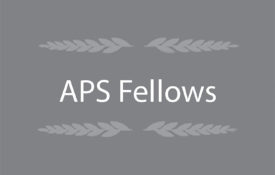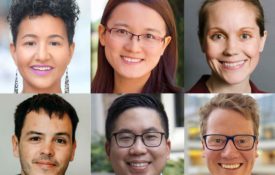-

New Research in Psychological Science
A sample of research on temporal construal effects, severe developmental dyscalculia, cognitive fitness in older adults, how choice boosts curiosity, and much more.
-

More Than 50 Psychological Scientists Named APS Fellows
The newest class of APS Fellows are recognized for research that spans many subdisciplines in exploring solutions to complex challenges and answering questions central to human (and animal, in the case of at least one new Fellow) psychology.
-

Six Early-Career Researchers Honored With 2023 APS Janet Taylor Spence Award
The six awardees are honored for groundbreaking research in areas including bias and discrimination, motivation, learning, and change.
-

Stop Oversimplifying Mental Health Diagnoses
Podcast: Diagnoses often oversimplify complex mental health problems. APS Fellow Eiko Fried, a psychologist and methodologist at Leiden University, explains new approaches to mental health research and practice.
-
Why Zoom ‘Happy Hour’ Falls FlatResults from a study published in Clinical Psychological Science suggest combining alcohol and virtual social interaction had negative effects compared to in-person gatherings. In the study, participants video called either a friend or a stranger seated in a separate room. Researchers gave some participants alcoholic drinks and others nonalcoholic drinks. As the call took place, researchers tracked participants’ eye movements, or “gaze behavior.” The study showed that participants who consumed alcohol before conducting the video chat spent more time watching themselves during the conversation instead of their partners.
-
What Good Comes From Pretending?
Hang out with a 3-year-old and you will quickly be transported to a world of unicorns and superheroes, pretend tea parties and invisible spaceships. Young children spend hours pretending. But why would they spend so much time exploring imaginary worlds when there is so much to learn about the real one? Pretend play may help children to develop an essential kind of reasoning—counterfactual thinking, which helps you figure out what would happen if things were different.

